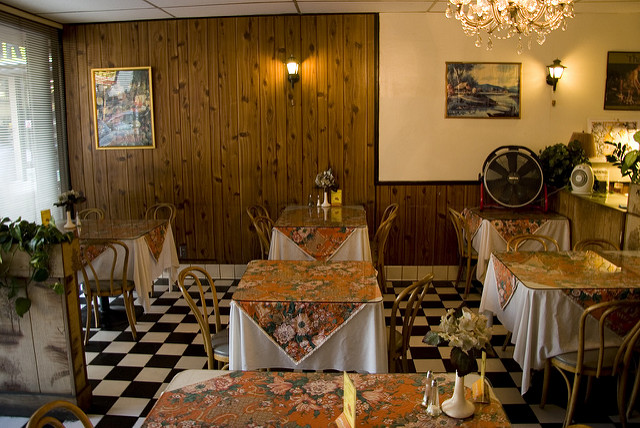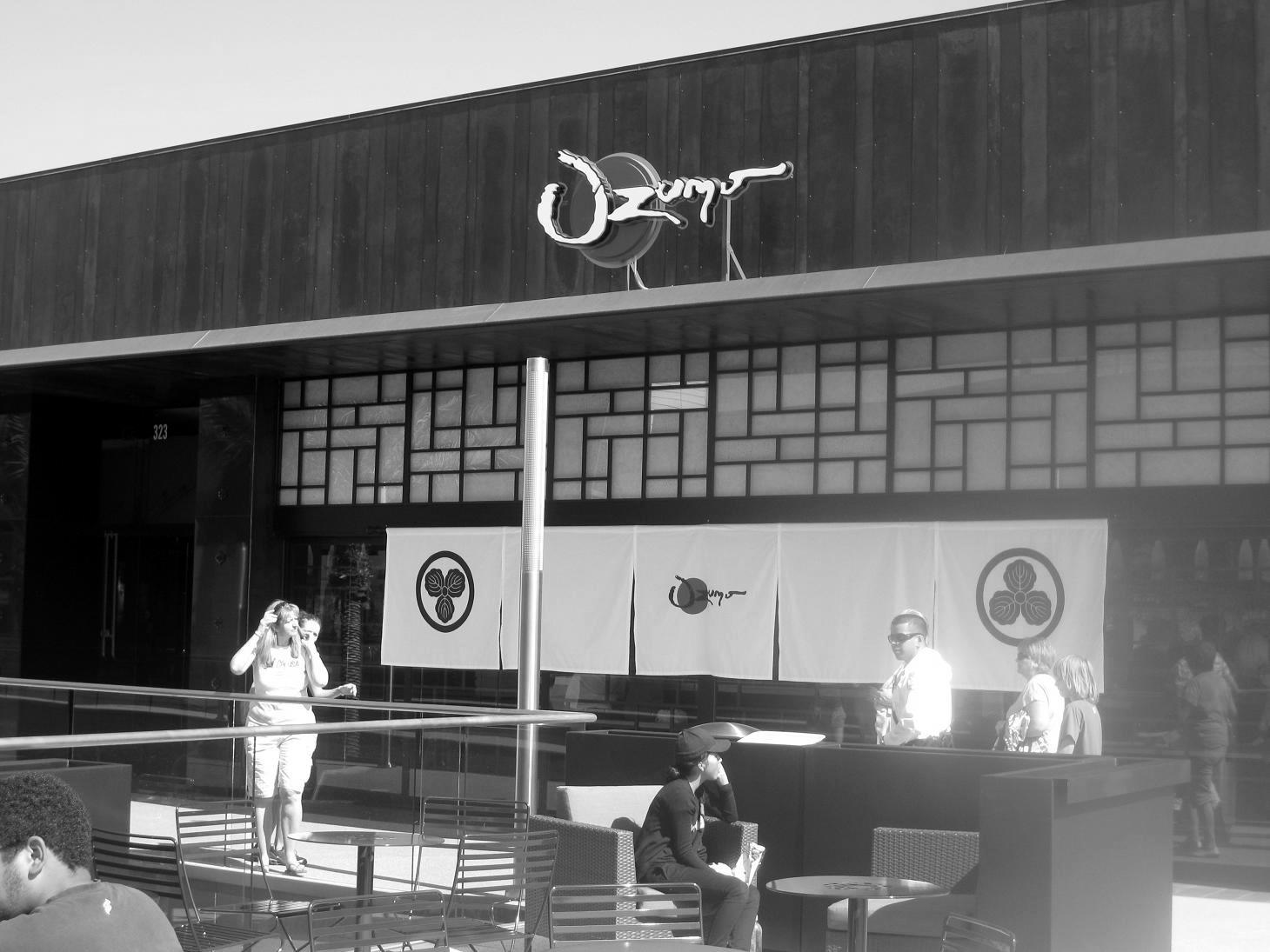“Sounds like a no-brainer,” Teddy said. He reclined deeper into the sofa, sunlight splashing off the cigarette drooped from his fingertips. “What did you come out to Los Angeles for? You didn’t come out to serve, or to learn more about the restaurant business. You came to write. So take whichever job will help you do that.”
He took a drag. Stared out across Culver City rooftops. “Wish someone told me that, when I was in New York. So I kept acting, instead of wasting two years bartending.”
The choices? A modern, fine-dining Japanese restaurant. Or a local, burn-n’-turn Thai spot.
If I’m serving, I want to learn – and I knew since square one there was serious educating to get done at the Japanese restaurant. The sommelier introduced two wines every pre-shift, dishing out bubbles and aroma wheels and a lexicon concerning tannins and notes and complexities of such complexity my notes consisted of a mish-mash of nada. Our bartender didn’t consider himself a sake expert, but that didn’t stop him from selling a $160, 300 ml bottle of sake to a Hollywood financier trying to impress his date. “It’s not what you know, it’s how you sell it,” he said, and proceeded to break it down.
Then there were the countless Japanese dishes, beyond Benihana-hibachi, onion-ring-volcano gambits and a sushi selection found in most Ralph supermarkets, next to the frozen Tilapia filets and Long John Silver fish sticks. Management wanted the servers to educate themselves. Any question – they tried to answer; if they couldn’t, they directed you to a better resource. Not one condescending eye cast for a silly question. If you wanted an education on food and drink, this was the spot.
It was an experience replicated to exactly the zero degree at the Thai restaurant, where the only thing management frowned upon more than idleness were questions. Not that there wasn’t plenty to learn – on the contrary, it was a cuisine of which I knew zippo, with Thai-lime-chili sauces and fresh cilantro and cucumber slice garnishes. After years of working in kitchens staffed by Chinese, I was suddenly surrounded by the by the buzz of Thai and Spanish. Even the menu selection – Thai dishes complimented with fried rices, Chow Mein noodles, Korea BBQ, and a sushi bar – was reminiscent of a menu I discussed about replicating in the past, but never seen well executed.
There was plenty to learn, except it was done on your own, with an observant eye and attention to detail. Ask too many questions, and you were regarded with suspicion rather than delight; who learned well under those conditions?
Teddy nailed it though – I didn’t come to learn about the restaurant business. I came to write, to work in the entertainment business; which job catered to that End Game? I left an hour early to get to the Japanese restaurant, followed by a ten minute skateboard ride just to get through the doors. If I worked a double, I’d have nothing to do other than aimlessly wander the 3rd Street Promenade with weekend European tourists and upper-middle class America during my break.
I commuted to the Thai spot in four minutes – by skateboard; home in the same amount of time it took most people to dig out their car keys. There was no “studying” either, no reviewing the wines and dishes I learned that day. I’d make a better income at the Japanese restaurant – cover more of my overhead, sustain my spot in this game – but that wasn’t why I was here, either. I didn’t move to Los Angeles to cover overhead, to play it safe and eke out a living, until I went broke half-heartedly chasing a dream. I came to write, to carve my niche out of the entertainment sphere, and the Thai restaurant gave me a stronger foothold to do just that.
I called my father for his input, after my talk with Teddy. I told my father what he said.
“That’s right,” he agreed. “That’s the only way you should look at this situation.”
“Juggle both jobs at first, to make sure you like this new restaurant. As soon as you know you want to stay, drop the old job.”
I told him I knew that was the play, but I felt… guilt. There was loyalty to the Japanese restaurant, because they hired me first, and had been good to me. I felt I owed it to the management to stick with them, instead of dropping them like a bad habit the instant something better came–
My father cut me off right there. “That’s the last thing that should cross your mind,” he scolded. “This is the restaurant business. People leave – it’s the highest turnover rate of any industry. Don’t worry about the restaurant or your managers; they don’t care about you. Right now, you’re alone in Los Angeles. No one’s going to help you if something goes wrong, so the only person you should be thinking about is yourself.”
Of course, he was right. He and Teddy were both right – which is why I left.
But I struggle with the idea, to only think of myself. The mentality infects this city – after only a month, already I see and feel its effects. It’d be so simple to buy into it, to bury the moral compass, but I can’t, not without a fight. There are consequences of thinking only about oneself, or thinking solely about money, or about what the benefits one reaps for xyz action, and they are ugly. It taints everything and everyone it comes in contact with, a reverse-Midas’ touch.
On the other hand, I’ve seen what happens when you stop caring solely for yourself, or your bottom line. When you take two seconds to stop kissing ass or climbing the corporate ladder. When you care more about doing the right thing, or getting it done right, instead of recognition or credit… and it’s a whole other world.
It’s also much harder. As is any endeavor that’s worth the effort.
###
Photo Credit: Eric Huang

